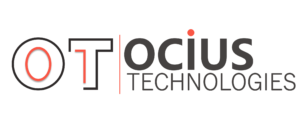Our Services
Cloud Integration Services
Cloud Cost Optimization Services
Cloud Integration Services
Google Cloud Bigtable
As described by Google, Google Cloud Bigtable is a fully managed, scalable NoSQL database service for large analytical and operational workloads. In fact, Cloud Bigtable is the same database that powers Google Search, Gmail, and Analytics.
While its competitors include products like Amazon DynamoDB and MongoDB, companies choose Bigtable for several reasons.
Not only does it integrate with Google Cloud tools, but it also easily integrates with big data tools like Hadoop, Dataflow, and Dataproc. Its performance is unmatched, and it is typically acquired at a lower cost than competitors.
It is setup to:
- Handle requests and big data quickly
- Scale with your organization’s growth
- leverage with machine learning applications
- Integrate with other Google Cloud services
Google Cloud Spanner
Google denotes that Google Cloud Spanner is fully managed relational database that is consistent with unlimited scale.
Oracle and PostgreSQL are some alternatives that clients consider. However, Google Spanner has proven to be a better option because it integrates with Google Cloud tools and has excellent scalability and consistency.
Benefits include the ability to:
- Deliver expected relational features, such as the ability to leverage SQL
- Integrate with other Google Cloud services
- Alleviate downtime concerns
- Provide automatic sharding, making it easy to scale your database
Google Cloud Datastore
According to Google, Google denotes that Google Cloud Datastore a “highly scalable NoSQL database for your applications”
Some alternatives clients sometimes consider are DynamoDB, MongoDB, and Redis. However, Cloud Datastore.
Datastore could help you by:
- Providing high availability
- Integrate with other Google Cloud services
- Allowing options for automatic scaling
- Incorporating multiple types of data
Google Cloud Storage
Google Cloud Storage, an object storage solution and part of the Google Cloud suite of products, can be used by companies and developers.
Some clients consider alternatives such as Google Drive, Firebase, and Amazon Glacier. However, Cloud Storage’s scalability, ease of use, and consistency.
As Google describes it, Cloud Storage can provide:
- Security for your data against outage
- Deliver content and back up data
- Help you customize both how and where you store your data
- Object Lifestyle Management, managing costs and performance
Google Cloud Firestore
Google Cloud Firestore, part of Google’s Firebase platform, is a document database for developers that is serverless and fully managed (according to Google).
Some of Cloud Firestore’s competitors include MongoDB and Amazon DynamoDB, but Firestore has been noted to be easy to use and fast. There are also other Google Cloud products that could be useful, depending on the scenario.
Cloud Firestore provides benefits such as:
- Being able to leverage for mobile, web, and IoT apps
- The ability to scale, as with other Google Cloud products
- Data security that businesses can trust
- Offline mode and live synchronizations
Google Cloud Pub/Sub
According to Google, Google Cloud Pub/Sub is “an asynchronous messaging service that decouples services that produce events from services that process events”.
Products like Apache Kafka, RabbitMQ, and SocketIO are mentioned as competitors, but Cloud Pub/Sub has been noted as easy to use and includes advanced features and automation.
The middleware helps organizations in multiple ways, including:
- Ability to store and deliver messages between different applications
- Offering consistency and high availability
- Scalability
- Lower cost option via Pub/Sub Lite
Google Cloud BigQuery
Google Cloud BigQuery is a cloud data warehouse solution that does not require a server and is scalable for different business needs.
Cloud BigQuery competitors include Amazon Redshift, Hadoop, and Snowflake; however, Cloud BigQuery is noted as having an easy process to load large amounts of data, and high performance.
Some of its many benefits include:
- Scalability for organizations that need to increase capacity
- A cost-effective solution
- Exceptionally fast data analysis skills
- Platform that offers security
Google Cloud AutoML
Google denotes that Google Cloud Spanner is fully managed relational database that is consistent with unlimited scale.
Other auto machine learning products include AutoKeras, DataRobot, and dotData. As mentioned though, companies can get up and running with Cloud AutoML without deep experience and get to results.
Benefits include the ability to:
- Easy to use interface, even for those not experienced with machine learning
- Fast performance and accurate predictions
- Research backed technology
- Strong training data to help model accuracy
Google Cloud Dataflow
Google Cloud Dataflow is a data processing service that does not require a server. One main alternative for Cloud Dataflow is Apache Spark, but Cloud Dataflow is fully managed and has autoscaling capabilities.
The Apache Beam programming model, according to Google, “simplifies the mechanics of large-scale data processing. Using one of the Apache Beam SDKs, you build a program that defines the pipeline. Then, one of Apache Beam’s supported distributed processing backends, such as Dataflow, executes the pipeline.” At Qlogic, we are experts in integration with services like this as well as Cloud Dataflow.
Cloud Dataflow helps organizations in multiple ways, including:
- Fast streaming pipeline for better data analytics speed
- Less need for resource management and overhead given that it is serverless
- Cost-efficient options
- AI capabilities
Cloud Cost Optimization Services
Cost Assessment and Optimization
Reserved Instance Management
Automated Rightsizing
Cost Monitoring and Reporting
Cloud Service Optimization
Cloud Governance and Best Practices
Our Work
We have helped our clients reduce infrastructure costs, enhance scalability, and improve operational efficiency with cutting-edge, tailor-made solutions. Our approach to each project is collaborative and customized, ensuring optimal alignment with each client’s unique business objectives.
With our comprehensive Cloud Integration & Cost Optimization services, we can help organizations unlock the full potential of cloud technologies, streamline their operations, and drive their business growth forward.
Case studies
Lorem ipsum dolor sit amet, consectetur adipiscing elit. Ut elit tellus, luctus nec ullamcorper mattis, pulvinar dapibus leo.Lorem ipsum dolor sit amet, consectetur adipiscing elit. Ut elit tellus, luctus nec ullamcorper mattis, pulvinar dapibus leo.Lorem ipsum dolor sit amet, consectetur adipiscing elit. Ut elit tellus, luctus nec ullamcorper mattis, pulvinar dapibus leo.
Lorem ipsum dolor sit amet, consectetur adipiscing elit. Ut elit tellus, luctus nec ullamcorper mattis, pulvinar dapibus leo.Lorem ipsum dolor sit amet, consectetur adipiscing elit. Ut elit tellus, luctus nec ullamcorper mattis, pulvinar dapibus leo.

Item One
Lorem Ipsum has been the industry.

Item Two
Lorem Ipsum has been the industry.

Item Three
Lorem Ipsum has been the industry.



Why Choose Us?
Choose us as your partner in cloud integration and cost optimization to leverage our expertise, tailored solutions, and comprehensive support. We will help you streamline your cloud operations, reduce costs, and achieve optimal performance, all while maximizing the value of your cloud investments.
- Expertise
- Tailored Solutions
- Comprehensive Approach
- Vendor-agnostic Approach
- Continuous Support
FAQ's
What is Cloud Integration?
Cloud integration refers to the process of connecting various cloud-based applications, services, and systems to enable seamless communication, data transfer, and collaboration. It allows businesses to leverage the benefits of multiple cloud services and platforms, creating a unified and efficient IT environment.
How can Cloud Integration benefit my business?
Cloud integration offers several benefits, including:
- Improved Efficiency: Integrating cloud services streamlines processes, reduces manual tasks, and eliminates data silos, leading to increased operational efficiency.
- Enhanced Collaboration: Cloud integration enables real-time data sharing and collaboration among teams and departments, promoting better communication and productivity.
- Increased Scalability: Leveraging cloud integration allows businesses to easily scale their IT infrastructure and resources up or down based on demand.
- Cost Savings: By integrating cloud services, businesses can eliminate the need for maintaining multiple on-premises systems, reducing hardware and software costs.
What is Cloud Cost Optimization?
Cloud Cost Optimization involves analyzing and optimizing cloud expenses to minimize costs while maintaining performance and scalability. It includes strategies such as right-sizing resources, leveraging cost-saving options, eliminating waste, and implementing controls to maximize the value of your cloud investments.
How can Cloud Cost Optimization benefit my business?
Cloud Cost Optimization offers several advantages, including:
- Reduced Expenses: By identifying and eliminating unnecessary costs, optimizing resource allocation, and leveraging cost-saving options, businesses can significantly reduce their cloud expenses.
- Improved Budgeting: Cloud Cost Optimization provides better visibility and control over your cloud spending, allowing for more accurate budget planning and forecasting.
- Optimal Performance: By right-sizing resources and matching them to actual usage, you can ensure optimal performance and avoid over-provisioning.
- Scalability and Flexibility: Cost optimization strategies enable you to scale resources based on demand, ensuring you have the right level of capacity at all times.



